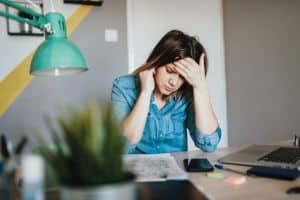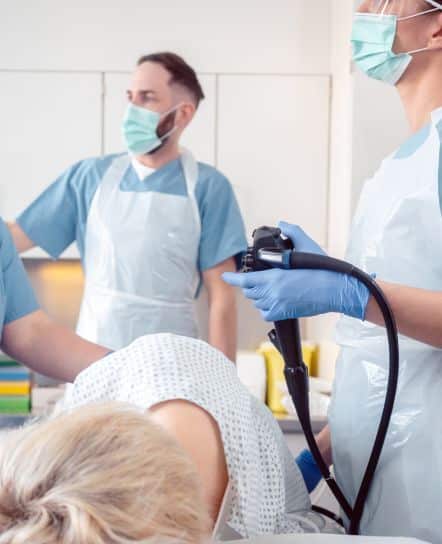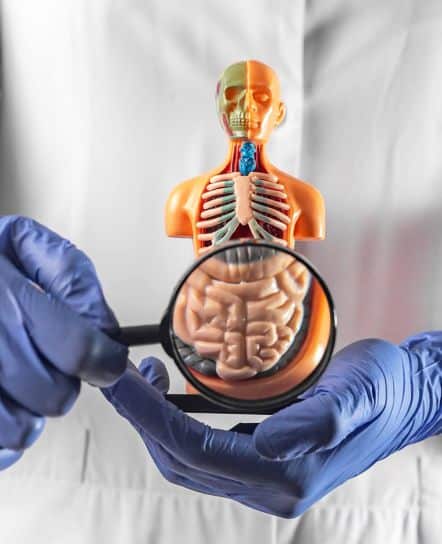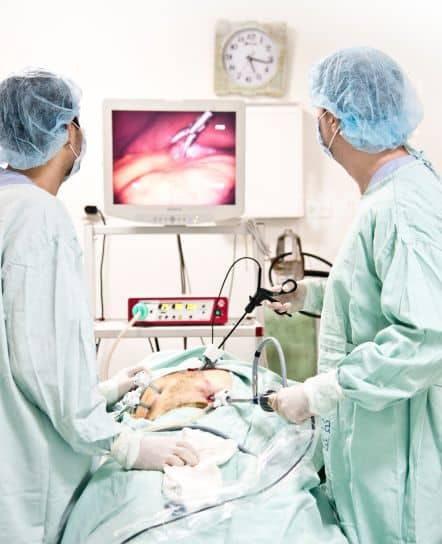What is a colonoscopy procedure?
A colonoscopy is a medical exam that is conducted to check the inside of your colon or large intestine and your rectum.
The exam is conducted using a large and flexible tube with a light and camera, referred to as a colonoscope.
This tube is inserted into your rectum to examine your colon to see if there are any changes in your body and if any physical symptoms are present in your large intestine.
Why are colonoscopy procedures done?
They are carried out to investigate symptoms, detect cancer, or treat a previous illness. The colonoscopy generally lasts around 30-60 minutes and is generally recommended for middle-aged and older adults.

Investigating symptoms
A colonoscopy may be conducted to identify and investigate sicknesses that are asymptomatic. Once identified, it’s easy to outline the causes of pain in the abdomen, bleeding in the rectum, and chronic diarrhoea.

Detecting cancer
A colonoscopy can be used to detect cancer present in your body. It can also determine whether the cancer has grown within your body. If you’re aged 45 or older, you’re more prone to develop stomach cancer.

Treating previous illnesses
A colonoscopy might be recommended to patients to treat previously diagnosed diseases, most often until symptoms begin to show patients are unlikely to know. This can clarify any health concerns a patient has.
What are the benefits of a colonoscopy?

A colonoscopy is useful for the detection and prevention of bowel diseases and bowel cancer, which allows patients to act beforehand rather than suffer from worsened symptoms and risks of a deteriorating health condition. It is important to take a colonoscopy if you are above 45, have a hereditary diagnosis of colon cancer, have noticed a change in reaction to your bowel movements, or are experiencing prolonged symptoms.
Colonoscopies are more effective compared to other bowel disease or cancer detection methods, experts have said. Most often, patients tend to worry about the pain, embarrassment, and preparation and tend to worry about the results and experiences others have had.
However, it is best to visit an experienced specialist because it will not induce pain or make you feel overwhelmed and embarrassed. Your specialist is likely to guide you through the right preparation process and will navigate you towards treatment.
The after-effects of a colonoscopy
After a colonoscopy, there are a few complications that may occur. However, with the right guidance from a specialist, these can be minimised. Infections are likely, but this depends on the clinic and specialist you visit. On some occasions, patients have allergic reactions to anaesthesia and this can be treated by consulting your doctor.
During a colonoscopy, if a stent or polyps are removed, it can result in tiny tears in the rectum or the wall of the colon. Depending on the size of the tear in your tissues, if the tear is small, it is often recommended to take bed rest and antibiotics. If the tears and wounds are big or deep, this can result in the need for surgery.
Minor bleeding can last for roughly 2-3 days and you will often see your stools pass with blood. If this continues over long periods, it is best to go back to your doctor or specialist and get it checked.
In rare and most serious cases, a patient may have post-polypectomy electrocoagulation syndrome; this is when a patient undergoes severe stomach pain, rapid heart rate, and fever after the procedure.

How to get ready for a colonoscopy

Before getting a colonoscopy you will need to meet your doctor. You can ask them questions about the overall procedure and this will help you plan out your day. It is best to have someone else look after you after the procedure because it can take a couple of hours or days to recover.
It is important to remember that your specialist is likely to recommend a diet to flush out and empty your colon, which is important for your diagnosis, the accuracy of the test, and the safety of your procedure.
Dietary changes or fasting
This requires some changes in your diet and meal plan. Before your colonoscopy, you will have to fast so your specialist can view it clearly with no blockages. This is important because it determines your results and the safety of your procedure.
Laxatives to empty your stomach
You may be required to take a laxative prescribed by your doctor to empty your colon and stomach before the colonoscopy. This may be inconvenient, but it ensures that your colon is cleaned out, improving your experience with the procedure.
FAQs
A colonoscopy is not recommended for those who are diagnosed with severe medical problems, patients with limited life expectancy, patients older than 75, and pregnant mothers.
The colonoscopy doesn’t take a lot of time and generally lasts for about 30-60 minutes. However, on the day before and the day of the procedure, you have to prepare yourself so it would be best to take a day off of work and allocate your day for the preparation process.
Depending on your situation after the colonoscopy, you can plan out your leave from work. If the doctor approves, you can go to work the day after your colonoscopy procedure as well.
Speak to a specialist about getting a colonoscopy
It is always said that prevention is better than cure. Being able to take care of yourself and getting diagnosed before your gastroenterology issue worsens is always better. Similarly, being able to get treatment sooner rather than later will be good for your health.
It is best to get a consultation if you bleed from the rectum, see blood, pus, or mucus in your stools, or have long periods of painful diarrhoea and changes in your bowel movements.
Dr. Suhirdan Vivekanandarajah is a highly experienced gastrointestinal specialist based in Sydney, Australia. He’s trained in various areas of gastroenterology and has provided patients with the best support and treatment for their medical needs for many years.
If you’re concerned about your gut health and require a colonoscopy or want to get a bowel cancer screening done, book a consultation with Dr. Suhirdan today.
